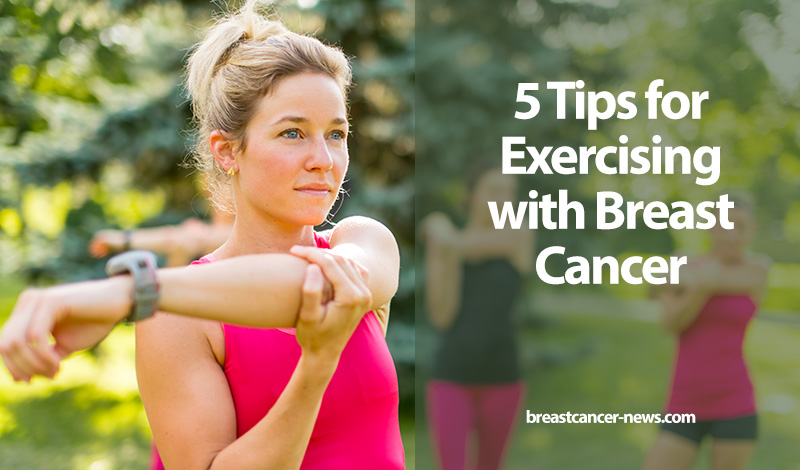Exercise is beneficial to your body, period. However, surgery to the breasts may affect how well and how comfortably you can move your arms and shoulders, or go about your daily activities such as bathing, driving, and so on. Pain and stiffness can cause limitations to those areas, but exercises can help you restore movement and decrease any side effects of the surgery, helping you get back to your usual activities!
Here are five tips for exercising after breast cancer treatment:
1- Slowly improve your stamina, and the rest will follow: Stamina is basically your energy level, and is augmented by exercising on a routine basis. Your body will slowly adapt to the increments in effort and with time, you will be able to exercise for longer periods of time.
2- Focus on mobility exercises for your shoulders and chest: This tip is mainly to address tightness of the chest and scarring lesions. Mobility exercises for the upper body are a must. Talk to your physiotherapist to have a better idea on which exercises are most suited for your surgery. Watch this video to learn some techniques.
3- Go for some core strength exercises: These exercises works well when you feel more active working your shoulders and chest, to help build your strength from the inside out. This is good for your upper body and stamina, key points in recovering from breast surgeries.
4- Balance and movement are key: Because of the potential side effects of chemotherapy, your coordination might be imbalanced. Each case is different, so if you feel kind of “off”, focus on some balance improvement, like taking up yoga or pilates, for example. Slowly improve your body balance and you’ll find yourself improving your coordination.
5- Find a gym or personal training suited to your health and environment: The biggest part of healing is feeling connected with people with similar problems. Watching your colleague finishing a set of training exercises for the first time in weeks might just give you the confidence boost you needed to finish your own set. Make sure you’re not alone, or even better, make sure you have good people around you encouraging you and helping you every step of the way.
Also… Keep in mind of these notes when going on your first exercise plans:
1- Make sure your doctor approves the plans and knows your limitations to give you help in the first steps of exercising.
2- Start slow. Recovery is a slow process, so have faith and patience in yourself.
3- Exercise in such a way that helps you build up some energy instead of feeling drained. Recovery exercises focus on regaining stamina, and if this isn’t happening, take a step back and re-evaluate your plan as you train along
Learn more about breast cancer news here: http://bit.ly/learnBreastCancer
Breast Cancer News is strictly a news and information website about the disease. It does not provide medical advice, diagnosis or treatment. This content is not intended to be a substitute for professional medical advice, diagnosis, or treatment. Always seek the advice of your physician or other qualified health provider with any questions you may have regarding a medical condition. Never disregard professional medical advice or delay in seeking it because of something you have read on this website.

